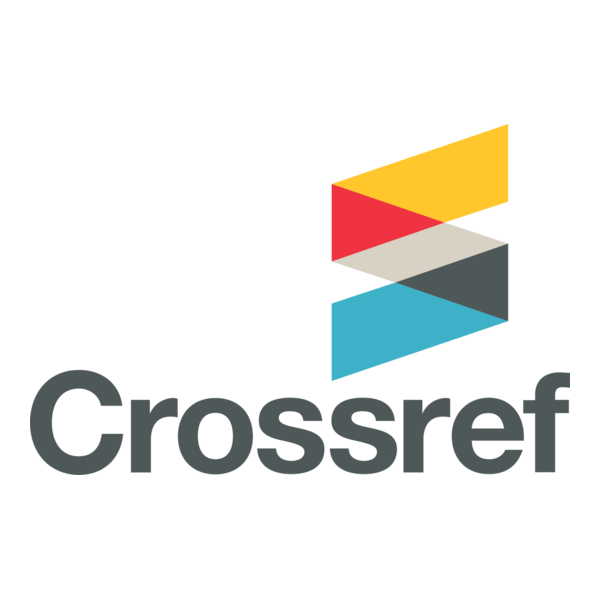Paradigma projektnega trikotnika
DOI:
https://doi.org/10.37886/ip.2025.002Ključne besede:
project management, project triangle, triple constraint, iron triangle, agile triangle, project performance, success factorsPovzetek
Ozadje in izvirnost: Projektni trikotnik, imenovan tudi trojna omejitev, železni trikotnik, zlati trikotnik in agilni trikotnik, je osrednji koncept raziskav in prakse projektnega menedžmenta, ki predstavlja razmerje med ključnimi merili uspešnosti. Vendar pa obstaja nesoglasje o tem, katera merila naj bodo predstavljena na ogliščih tega trikotnika. Namen tega prispevka je raziskati, kateri koncepti so del projektnega trikotnika in kako so se ti koncepti skozi čas spreminjali.
Naš namen je opraviti sistematičen pregled znanstvenih člankov, ki obravnavajo tematiko projektnega trikotnika in njegove elemente (čas, stroški in obseg). Dokazati želimo, da obstaja teoretična praznina v klasični teoriji projektnega trikotnika ter da se elementi projektnega trikotnika nenazadnje odražajo v uspešnem menedžiranju projektov.
Obravnava te tematike bo prispevala k odpravi ali vsaj zmanjšanju zaznane teoretične raziskovalne vrzeli oz. zmede glede pozicioniranja elementov projektnega trikotnika ter povezave teh elementov na uspešnost projektov.
Metoda: Sistematičen pregled znanstvene literature bo izveden po javno dostopnih bazah podatkov, in sicer smo kot iskalne pojme uporabili »železni trikotnik«, »trojna omejitev«, »uspešnost projekta« in »dejavniki uspeha«. Znanstvene članke in doktorske/magistrske disertacije smo poiskali v bazah Academia.edu, ProQuest, ScienceDirect, Elsevier/Scopus in Google Scholar. Izločili smo literaturo, ki se neposredno ne nanaša na področje raziskovanja.
Rezultati: Ugotovili smo, da obstaja v osnovni teoriji projektnega trikotnika praznina oz. zmeda glede pozicioniranja kakovosti in obsega projekta v projektnem trikotniku. Želimo torej zmanjšati vrzel in potrditi tezo, da kakovost ni eden od 3 elementov projektnega trikotnika, ampak je posredno definirana skozi elemente projektnega trikotnika (čas, stroški, obseg). Avtorji do sedaj izvedenih raziskav so navedli elemente projektnega trikotnika in po skupinah definirali merila uspešnosti projektov, med katere so uvrstili posamezne elemente projektnega trikotnika. Pričakujemo, da bomo potrdili hipotezo, da obstaja povezava med elementi projektnega trikotnika in uspešnostjo projektov.
Družba: Naša raziskava bo potrdila razsežnost koncepta projektnega trikotnika in pokazala vpliv njegovih elementov na najpogostejše skupine meril uspešnosti, s pomočjo katerih družbe merijo uspešnost projektov. Ta raziskava bo pokazala, katerim elementom projektnega trikotnika in meril, pripisuje znanstvena literatura večji pomen, kar predstavlja izhodišče za optimizacijo na področju menedžiranja različnih vrst projektov.
Razumevanje koncepta železnega trikotnika in njegove vloge pri oblikovanju meril uspešnosti bo pripomoglo, da bodo različni deležniki, ki so vpeti v menedžiranje projektov, bolj motivirani za spremljanje elementov projektnega trikotnika, da jim bo to omogočalo bolj učinkovito menedžiranje, kar posledično vpliva tudi na njihovo zavzetost pri opravljanju projektnih zadolžitev.
Omejitve/nadaljnje raziskovanje: Obravnavana tematika je dobro preučevana zadnjih 20 let, čeprav se je teoretično zelo preoblikovala. Istočasno opažamo, da teoretični obravnavi ne sledijo znanstvene raziskave, saj le-te pokrivajo predvsem področje metodologije, faktorjev in strategij uspešnosti projektnega menedžmenta v gradbeništvu oz. na velikih investicijskih projektih, področju IT in zdravstvene dejavnosti.
Predlogi za nadaljnje raziskovanje bodo podani v smeri, da se raziskava te tematike izvede v drugih panogah in drugih vrstah projektov ter na več različnih deležnikih in/ali deležniških skupinah, ki so vpete v menedžiranje projektov.
Literatura
Adejoh, A. A., Asebiomo, M. M., Ogunbode, E. B., Oyewobi, L. O., Sani, M. A., Isa, R. B. & Jimoh, R. A. (2023). Influence of Contractor Selection Criteria on Critical Success Factors of Public Project Delivery in Abuja. Environmental Technology and Science Journal, 13(2), 86-98. doi: 10.4314/etsj.v13i2.10
Ajibike, W. A., Adeleke, A. Q., Muuka, G. N., Bamgbade, J. A., Darun, M. R. & Moshood, T. D. (2022). Impacts of Oil and Gas Internal Risk Factors on Project Success: Moderating Role of Government Support. Construction Economics and Building, 22(1), 47-69. doi: 10.5130/AJCEB.v22i1.7842
Alade, T. A., Bukoye, O. T, Roehrich, J. K. & Edelenbos, J. (2022). Cross-national collaboration in strategic transport projects: The impact on benefits realization. International Journal of Project Management, 40(4), 411-425. doi: 10.1016/j.ijproman.2022.03.009
Al Mokhtar, M. A. S. & Mazen, M. F. (2021). The Impact of Transformational Leadership Factors on Project Progress and which Factor has Significant Influence and Great Contribution towards Project Success. Webology, 18(4), 1389-1412. doi: 10.14704/WEB/V18SI04/WEB18205
Amora, V. C. M. & Juanzon, J. B. P. (2022). A Framework of Critical Success Factors and Success Criteria for Structural Works of a Mixed-Use Building Construction Project. Civil Engineering and Architecture, 10(1), 267-279. doi: 10.13189/cea.2022.100123
Bond, S. S. (2022). International Development Project Strategies to reduce the Negative Impact of Triple Constraints (Master’s dissertation). Walden University, USA
Borsuk, B. J. (2022). Manufacturing Execution Systems Project Success (Doctoral dissertation). Faculty of Saint Leo University, USA
Byers, S. (2022). Large Construction Projects – Measuring Success Through Different Stakeholders’s Eyes (Doctoral dissertation). University of Western Australia, Australia
Bukoye, O. T., Ejohwomu, O., Roehrich, J. & Too, J. (2022). Using nudges to realize project performance management. International Journal of Project Management, 40(8), 886-905. doi: 10.1016/j.ijproman.2022.10.003
Bursaw, C. J. (2022). Effects of Traditional and Agile Project Management: Analysis for Project Succes in Noniformation Technology Environments (Doctoral dissertation). Faculty of Saint Leo University, USA
Cardella, C. (2022). Project Termination Quality and its Influence on Organizational Learning and Project Management Success (Doctoral dissertation). University of North Carolina at Charlotte, USA
Clark, J. M. (2021). The Extent of Project Management Competencies and Project Complexity on Project Success: a Correlation Study (Doctoral dissertation). Capella University, School of Business and Technology, USA
Egboga, I. & Cross, O. D. (2022). How relevant is the iron triangle as a measure of construction project performance. World Journal of Management and Business Studies, 2(1), 1-14.
Essien, I. O. (2021). Modelling Project Complexity for Leadership Decision-making and Success in the Building Construction Industry in Lagos, Nigeria (Doctoral dissertation). Oxford Brookes University. Lagos, Nigeria.
Girma, B. H. (2021). The Practice of Monitoring and Evaluation in Ethiopian Road Projects: The Case of Federal Road Projects (Master’s dissertation). St. Mary’s University, Addis Ababa, Ethiopia
Highsmith, J. (2009). Agile Project Management: Creating Innovative Products (2nd ed.). Pearson Education.
How Agile Keeps Projects on Track, On Time, On Budget. Vertical motion. Retrieved from https://www.verticalmotion.ca/how-agile-keeps-projects-on-track-on-time-on-budget/
Hussain, A., Jamil, M., Farooq, M. U., Asim, M., Rafique, M. Z. & Pruncu, C. I. (2021). Project managers’ personality and project success: Moderating role of external environmental factors. Sustainability (Switzerland), 13(16), art.9477, 1-22. doi: 10.3390/su13169477
Hussain, D. A., Khan, G. A., Khan, D. J. A. & Khan, M. I. (2022). Project Success Factors and Project Management: Empirical Evidence from Pakistan. International Journal of Business and Management Sciences, 3(2), 67-79. Retrieved from https://www.ijbms.org/index.php/ijbms/article/view/219
Ika, L. A. & Pinto, J. K. (2022). The “re-meaning” of project success: Updating and recalibrating for a modern project management. International Journal of Project Management, 40(7), 835-848. doi: 10.1016/j.ijproman.2022.08.001
Imran, M., Hye, A. K. M., Urbanski, M. & Dacko-Pikiewicz, Z. (2022). Assessment of Risk Factors and Project Success in Construction Industry. Transformations in Business & Economics, 21(2B(56B)), 986-1000. Retrieved from https://www.researchgate.net/publication/366901748_Assessment_of_Risk_Factors_and_Project_Success_in_Construction_Industry
Jayyousi, A. A. (2021). A Critical Examination of the Relationship Between Project Management Leadership Style and Project Success in the United Arab Emirates Construction Industry (Master’s dissertation). California Southern University, California, USA
Kerzner, H. (2023). Project Management Metrics, KPIs, and Dashboards. A Guide to Measuring and Monitoring Project Performance (4th ed.). Hoboken, New Jersey: John Wiley&Sons.
Kumar, V., Pandey, A. & Singh, R. (2023). Project success and critical success factors of construction projects: Project practitioners' perspectives. Organization, Technology and Management in Construction, 15(1), 1-22. doi: 10.2478/otmcj-2023-0001
Lama, N. D., Kian, M. W. & Ojha, S. K. (2022). Institutional Competence Factors Affecting Multiple Project Management Success; The Case of Nepalese Construction Industry. International Journal of Academic Research in Business and Social Sciences, 12(5), 1882-1906. doi: 10.6007/IJARBSS/v12-i5/13897
Locatelli, G., Paravano, A., Terenzi, M. & Trucco, P. (2023). Yes, construction cost, time and scope are important, but there is more: a new action plan for infrastructure success. Management Decision, 61(13), 413-424. doi: 10.1108/MD-04-2022-0516
Madsen, S. (2013, December 3). Is the iron triangle outdated? Retrieved from
https://www.susannemadsen.co.uk/blog/the-iron-triangle-and-the-tripleconstraintsare-outdated
Mellado, F., Lou, E. C. W. & Becerra, C. L. C. (2020). Synthesising performance in the construction industry: An analysis of performance indicators to promote project improvement. Engineering, Construction and Architectural Management, 27(2), 579-608. doi: 10.1108/ECAM-09-2018-0419
Moreno-Monsalve, N., Delgado-Ortiz, M., Rueda-Varón, M. & Fajardo-Moreno, W. S. (2023). Sustainable Development and Value Creation, an Approach from the Perspective of Project Management. Sustainability (Switzerland), 15(1), art. 472, 1-15. doi: 10.3390/su15010472
Page, M. J, McKenzie, J. E., Bossuyt, P. M., Boutron, I., Hoffmann, T. C., Mulrow, C. D., … Moher, D. (2021). The PRISMA 2020 statement: an updated guideline for reporting systematic reviews. BMJ, 372(71). doi: 10.1136/bmj.n71
Pollack, J., Helm, J. & Adler, D. (2018). What is the Iron Triangle, and how has it changed? International Journal of Managing Projects in Business, 11(4), 527-547. doi: 10.1108/IJMPB-09-2017-0107
Salazar, L. (2018, September 13). From iron triangle to agile triangle (extended). Retrieved from https://www.linkedin.com/pulse/from-iron-triangle-agile-extended-luis-antonio-salazar-caraballo/?trackingId=eHMns0r0Sgafm4EpYO3oKw%3D%3D
Samset, K. F. & Volden, G. H. (2016a). Front-end edition of projects: Ten paradoxes and some
reflections regarding project management and project governance. International Journal of
Project Management, 34(2), 297-313. doi: 10.1016/j.ijproman.2015.01.014
Samset, K. F. & Volden, G. H. (2016b). Front-end Definition of Major Public Projects. Theoretical insights and conflicting practices. A selection of findings from studies conducted by the Concept Research Program. Norwegian University of Science and Technology, Trondheim. Retrieved from http://hdl.handle.net/11250/2437547
Shrestha, B. K. (2021). Relationship Between Standardization Critical Success Factors (CSFs) and Project Performance (Doctoral dissertation). University of Nevada, Las Vegas, USA
Sidlayiya, T. H. (2022). The Impact of Project Control in Project Succes in the Events Industry in Cape Town (Master’s dissertation). Cape Peninsula University of Technology, Cape Town, SAR
Team Asana. (2024, February 15). What is the project management triangle and how can it help your team? Retrieved from https://asana.com/resources/project-management-triangle
Varajão, J., Lourenço, J. C. & Gomes, J. (2022). Models and methods for information systems projects success evaluation – A review and directions for research. Heliyon, 8(12), e11977. doi: 10.1016/j.heliyon.2022.e11977
Volden, G. H. & Welde, M. (2022). Public project success? Measuring the nuances of success through ex post evaluation. International Journal of Project Management, 40(6), 703-714. doi: 10.1016/j.ijproman.2022.06.006
Vrchota, J., Řehoř, P., Mařiková, M. & Pech, M. (2021). Critical Success Factors of the Project Management in Relation to Industry 4.0 for Sustainability of Projects. Sustainability 2021, 13(1):281. doi: 10.3390/su13010281
Yedvav, H., Kordova, S. & Fridkin, S. (2022). Offset Obligation in Defense Projects: Schedule, Budget, and Performance Implications. Sustainability (Switzerland), 14(18), art. 11184, 1-21. doi: 10.3390/su141811184
Young, M. (2016). Private vs. public healthcare in South Africa (Bachelor's thesis). Western Michigan University, USA
Dodatne datoteke
Objavljeno
Kako citirati
Številka
Rubrike
Licenca
Avtorske pravice (c) 2025 Mateja Burgar Makovec

To delo je licencirano pod Creative Commons Priznanje avtorstva-Deljenje pod enakimi 4.0 mednarodno licenco.
![]()








